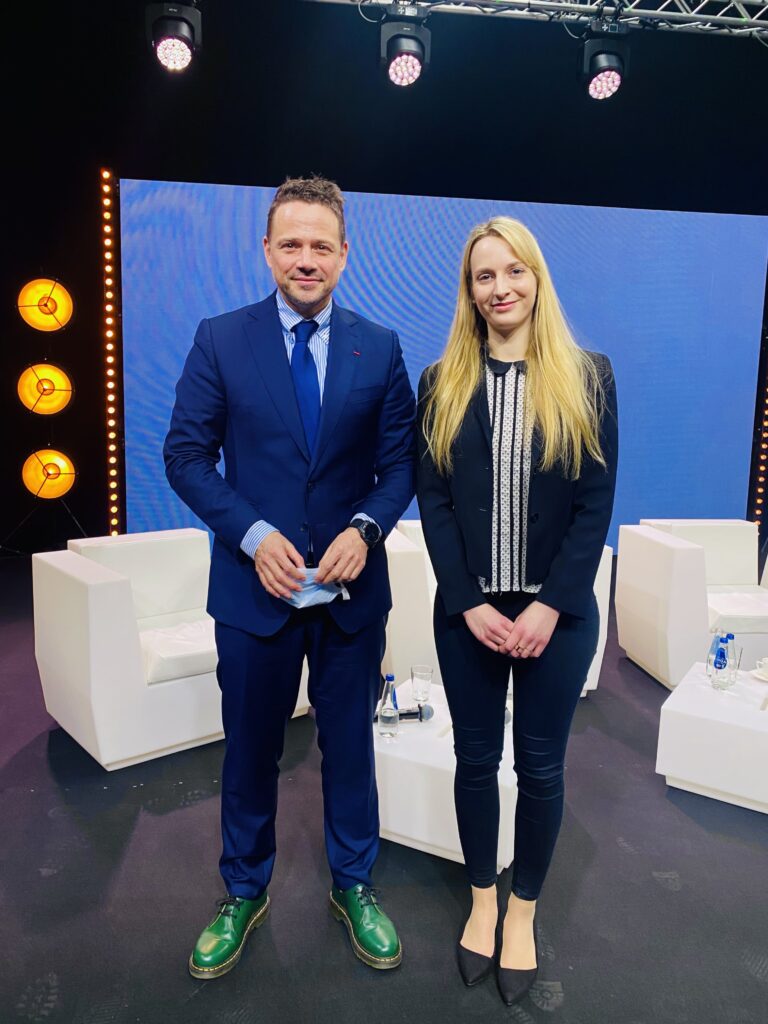Warsaw, Poland, 22 February 2022 – How can local authorities prevent hate speech and polarisation, and what kind of support from the EU do they need to do so? This was the theme of a public debate organised by the Union of Polish Metropolises, the City of Warsaw and Efus in hybrid mode, on site in Warsaw and online, on 22 February.
This event was held in the framework of the Conference on the Future of Europe (June 2021-May 2022), whereby European citizens are invited to say what they expect from the European Union.
The need to share experiences and best practices for a common culture of security
European cities and regions have great capacities to mobilise citizens, promote solidarity and social cohesion, and prevent and mitigate hate speech, crime-fuelling polarisation and violent extremism. On the frontline when it comes to priority issues for citizens, they represent the level of government best placed to develop policies to reinforce everyday security and decrease social tensions.
However, local officials note persistent inequalities, weakened social cohesion, and growing mistrust towards institutions. Nowadays, local authorities feel it is more necessary than ever to share experiences and practices and work together to develop concrete recommendations for a shared culture of security in Europe.
“Local and regional authorities play a key role when democracy is under attack”
All the speakers highlighted the key role of local and regional authorities in preventing hate speech that can fuel polarisation and violent extremism.
The Vice President of Efus and First Deputy Mayor of Mannheim (DE), Christian Specht, emphasised that “polarisation and violent extremism are most visible at the local level” and highlighted that local actors are best placed to act as they are “in direct contact with citizens.”
The Mayor of Warsaw (PL), Rafał Trzaskowski, mentioned the importance of cooperation with the relevant local actors on the ground, such as NGOs. “Local and regional authorities play a key role when democracy is under attack. In Warsaw, we support NGOs that fight hate speech; we teach tolerance. Local authorities step in when the government does not take action,” he said.
Representing the City of Budapest (HU), Benedek Javor highlighted that “local governments, which are the last refuge to mitigate hate speech, must lead by example.”
The Mayor of Gdansk (PL), Aleksandra Dulkiewicz, also insisted on the exemplary role that local authorities can play in fighting hate and polarisation. They have concrete tools to do so, she said, notably education. “We try to show positive examples of different people who are part of our society. Education is key to becoming open minded citizens.”

EU support to local and regional authorities to prevent and mitigate hate speech
Another common theme among the speakers was multi-level cooperation and the need for EU support to local and regional authorities.
Member of the European Parliament and President of the URBAN Intergroup Jan Olbrycht remarked that hate speech can spread on social media but also in the streets and that local actors need adequate and agile support to prevent it. He noted that “Efus, which promotes a holistic approach to urban security, offers innovative ways to support local authorities, for example through EU-funded programmes.”
Bartłomiej Balcerzyk, Head of the Communication Section at the European Commission’s Representation in Poland, observed that “cities and regions usually present innovative and forward-looking solutions when it comes to preventing and mitigating hate discourses.” However, in order to jointly tackle this challenge and involve all the relevant governance levels, “we need to harmonise our actions.” The initiative announced in December by the European Commission to extend the list of EU crimes to hate speech and hate crime is a step forward, as it “provides a common definition and introduces joint sanctions,” he said.
> Watch the video of the debate on Efus’ YouTube channel
> More information on the theme of polarisation in our recent publication
BRIDGE – Understanding and addressing polarisation at the local level, Efus, 2021





